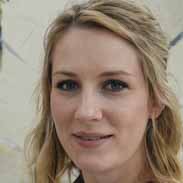International Organizations Flashcards, test questions and answers
Discover flashcards, test exam answers, and assignments to help you learn more about International Organizations and other subjects. Don’t miss the chance to use them for more effective college education. Use our database of questions and answers on International Organizations and get quick solutions for your test.
What is International Organizations?
International organizations are groups of countries that come together to promote global initiatives related to peace, security, and economic development. These organizations are typically comprised of governments from various countries that agree to cooperate on a range of topics and coordinate their efforts in order to achieve shared goals. Some of the most prominent international organizations include the United Nations, the World Bank Group, the World Trade Organization, and the International Monetary Fund.The United Nations is one of the most well-known international organizations. It was created after World War II with a mission to maintain international peace and security while also promoting social progress and better living conditions for all people around the world. The UN is composed of 193 member states who meet in its New York headquarters several times each year in order to discuss critical topics such as global climate change and refugee crises. Additionally, it has a number of specialized agencies such as the World Health Organization that work on important issues like health care reform and disease prevention programs. The World Bank Group is another significant international organization dedicated mainly to reducing poverty worldwide by providing loans for development projects in developing countries. Established after WWII with an initial focus on Europe’s postwar reconstruction efforts, this group now provides financial assistance for projects in over 100 different countries across five continents every year through its network of offices located around the world. The WTO (World Trade Organization) works towards liberalizing global trade by setting rules between countries which govern how goods can be bought or sold between them so as to minimize trade disputes or protect domestic industries from external competition. Furthermore, it offers technical assistance for developing economies looking for guidance on free-trade agreements or other economic strategies designed to increase their access to foreign markets and boost their economies overall. Finally, there is also The International Monetary Fund (IMF), established shortly after WWII with a goal of stabilizing exchange rates between nations while also providing technical advice related to macroeconomic policies such as taxation systems or budget deficits management frameworks aimed at increasing prosperity levels across all participating economies worldwide regardless their size or origin location.
























